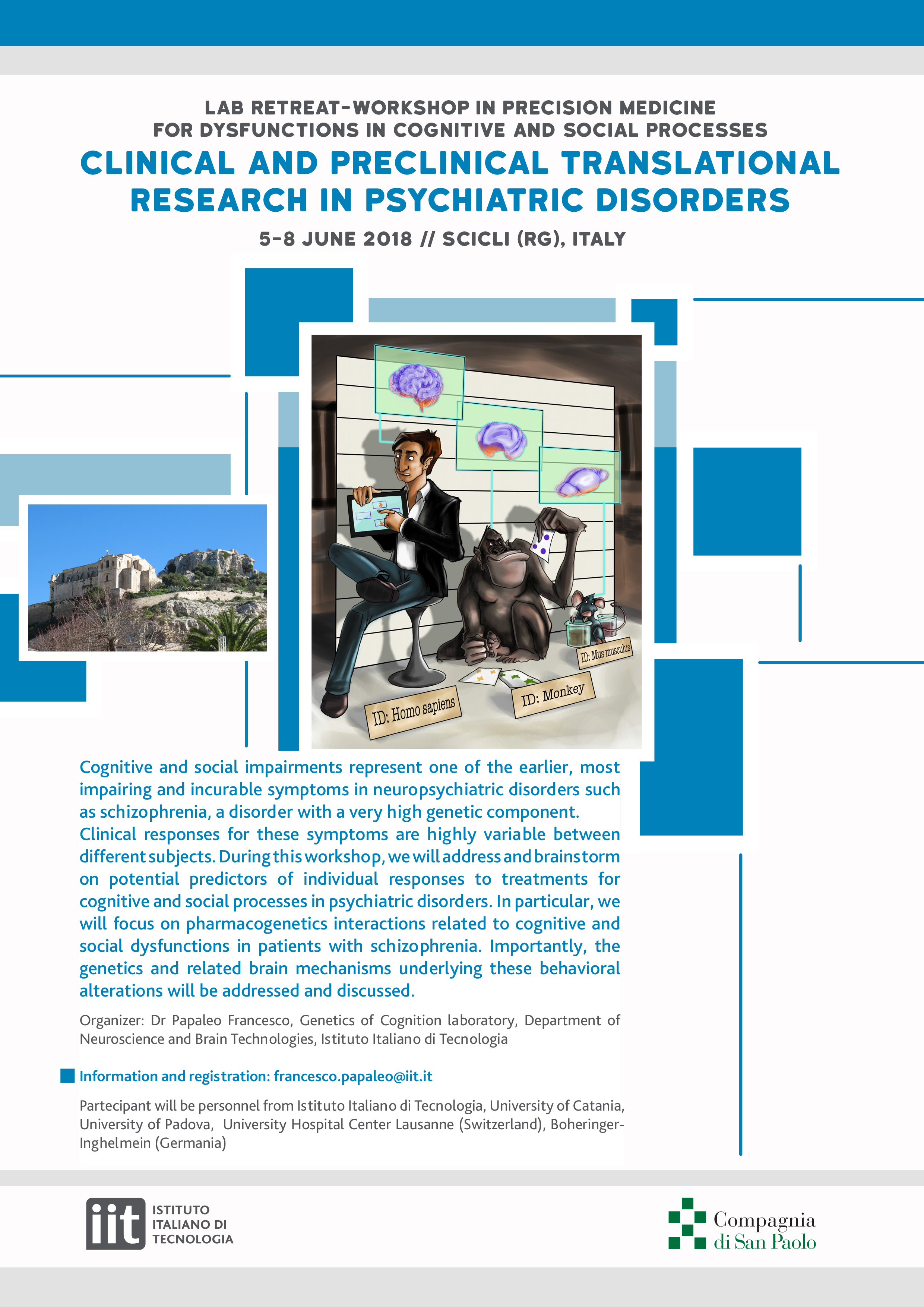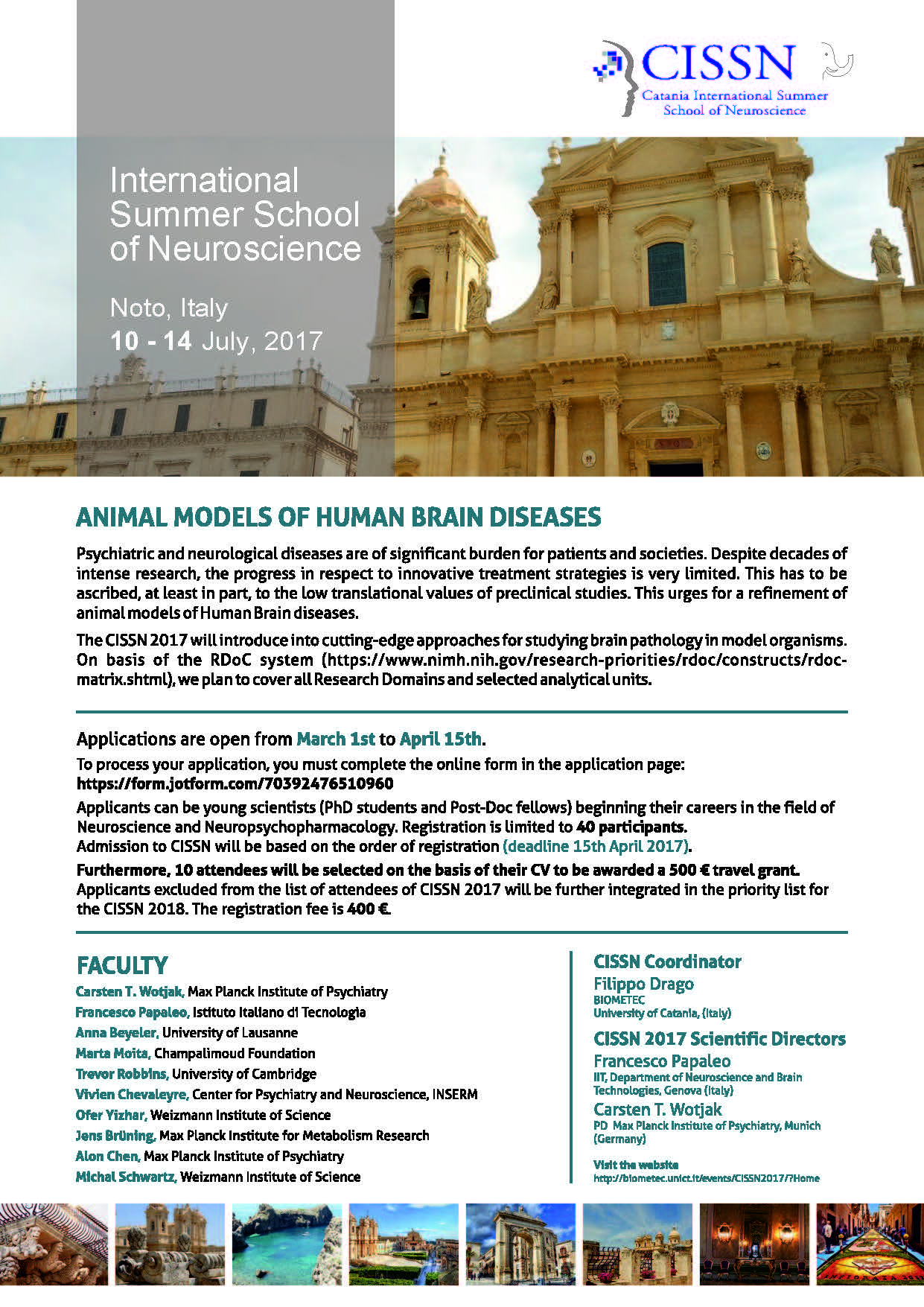Articolo completo su Le Scienze - 20 luglio 2018
08-12 October 2018
PHENOTYPING ANIMAL MODELS OF NEURODEVELOPMENTAL DISORDERS (NDDS)

Sono due i ricercatori di IIT che si sono aggiudicati il più recente finanziamento da parte di Telethon per condurre progetti sulle malattie rare, Francesco Papaleo a Genova e Alessandro Gozzi a Rovereto. Il finanziamento totale è di circa 450 mila euro, che i ricercatori utilizzeranno per migliorare la conoscenza dei meccanismi biologi legati alla sindrome di DiGeorge e delle sindromi da deficit primario di creatina. Le due sindromi ricadono nella definizione di malattie rare, poiché l’incidenza nella popolazione è inferiore alla soglia di 5 persone su 10000, definita a livello europeo.

Attentional set-shifting cognitive abnormalities are a core feature of many psychiatric diseases. Here, we present the development of a novel automatic system for the effective study of attentional set-shifting abilities, executive functions and other cognitive abilities in mice with high translational validity to human studies.
Researchers have developed a new model for studying schizophrenia by genetically engineering mice that produce high levels of a human protein, NRG1-IV, in the brain. NRG1-IV, a protein that helps control the development and function of neurons, is overabundant in the brains of people with the schizophrenia who have a specific genetic variant in the NRG1 gene.
Antipsychotic medications are a cornerstone of treatment for schizophrenia and related disorders. They prevent hallucinations and delusions for most people, and for some, they also help reduce the cognitive impairments associated with these illnesses, such as problems with memory and attention.